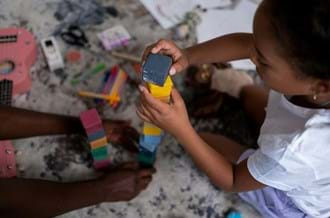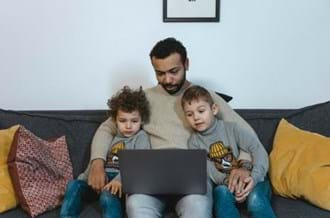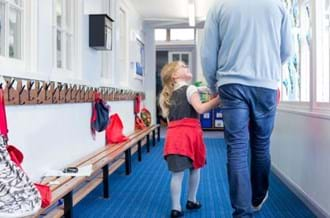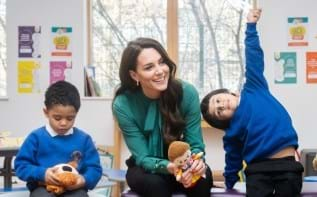‘What’s the problem?’ – problem-solving as a parent
‘What’s the problem?’ – problem-solving as a parent

Judah Racham
Programme Leader for Family Work - Judah is a BACP registered counsellor, and Parent-training Mentor, who joined Place2Be in 2021. He has over 7 years experience delivering counselling and therapeutic services for adults and children. Judah has been supporting parents and carers, delivering parent training and supervising parenting practitioners within local authorities and the NHS for over 17 years.
Our latest Parenting Smart topic, Problem-solving with Children, takes you through the steps to problem-solving that can help your child. In this blog to coincide with the launch of the article, Judah Racham reflects on some of the challenges he faces as a parent when dealing with everyday disputes that happen with children.
I live in a very busy household, with three sons that are full of energy, liveliness and strong opinions. Generally, I would say that they do get on quite well, but there are always moments during the day when their ability to co-exist peacefully is challenged (I’m putting it politely).
What causes the issues? The list is long and varied. It could be someone taking something without asking, whose turn it is to use the games console, which programme to watch on the television, or there is only 1 packet of crisps left and everyone wants it. These are the disagreements that I usually hear, and they usually accompany faces that have big frowns and bottom lips that are pushed out further than usual.
At times I have found it challenging not to respond like a bull in a china shop. This response usually results in me telling them that the source of the argument is going to be confiscated forever, never to see the light of day again! If you asked my wife about what I say most in our house, she would probably say it’s ‘what’s the problem now boys!?’.
Over time (quite a long time), I have learned that these moments of sibling conflict – or crises – can actually help them to develop new skills. Someone once told me that the Chinese word for ‘crisis’ also means ‘opportunity’ and this is what I have found with these little crisis moments between my children.
What is the opportunity? These everyday problems always require solutions, and this is where I have realised that the opportunity existed to encourage my boys to learn the skill of problem-solving.
I previously held a belief that my parental responsibility was to be the primary source of solving problems for my children, and that giving them the solutions for how to deal with things was the best way to help them at the time.
So, what do things look like in my house now when there is a problem between my boys, and I am the one who hears the argument? I have stopped my bull in the china shop routine – but my classic quote of ‘what’s the problem now boys!?’ remains the same. Except now, instead of wading in and confiscating games consoles, I try my best to give each person some space to explain how they see the issue (usually from both or even all three perspectives).
Now, instead of trying to solve these issues alone, I get them to think about ideas on what could be done to solve the problem if it happens again. This has been such a great learning curve for me, showing me how intelligent my boys really are when given a chance to let their brains do some work. These ‘problems’ have produced some good conversations about dealing with issues and potential conflict. Even when we don’t find an idea that works, the conversation we’ve all had still feels so valuable.
I have become a real believer in helping to facilitate problem-solving conversations with my sons. I really think that this will be a great skill for them to use in the future. It also has strengthened my belief that part of my job as a parent is about doing myself out of a job. By letting my boys learn to do more things for themselves and problem-solving, I think I am achieving that.
Explore the Problem-solving with Children topic on Parenting Smart
News & blogs

The Upside of Boredom
Read how Place2Be counsellor Judah combats boredom with his children and encourages their imagination.
Read more
Social media, my children and me
Place2Be's Programme Leader for Family Work, Judah, explores how he navigates technology and social media with his children.
Read more
Fostering the power of relationships
Celebrate the power of relationships to transform the lives of children and young people in foster care.
Read more



